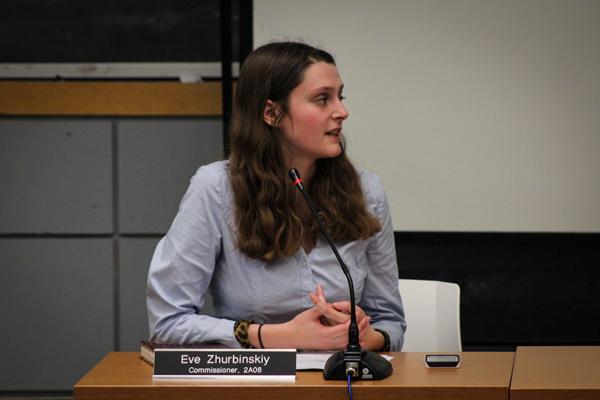GW is part of a group lobbying against a D.C. Council bill that would give people who live or work in the District up to 12 weeks of paid leave.
GW and other universities and businesses created an “employer mandate” proposal that would allow employees in the District eight weeks of paid leave, rather than a 12-week plan through a government-run fund that the D.C. Council proposed. Proponents of the paid leave bill say that although the University might be able to afford giving paid leave to its employees, the suggested method doesn’t benefit smaller businesses in D.C.
At-large D.C. Council member David Grosso, along with six other Council members, first introduced the bill almost a year ago that would allow employees paid time off if they are sick or need to care for a new child. Earlier this year, Council chair Phil Mendelson adjusted the bill to scale back the time that workers could take off, cutting the maximum time from 16 weeks to 12 weeks.
Paid leave under the current D.C. Council proposal requires employers to pay up to 1 percent of the business’s total salaries into a fund through a payroll tax to cover the Council’s paid leave plan. The employer mandate proposal would create a “unified program” allowing the University and other organizations to fund employees’ leave itself, rather than going through the District-wide fund.
Renee McPhatter, the assistant vice president for government and community relations, said in an email that GW supports the employer mandate program because it would allow employees eight weeks of paid leave at 100 percent of their pay, as opposed to 90 percent of pay for 12 weeks that the universal paid leave plan would offer.
“The proposal would be very costly and would not provide our employees complete wage replacement,” McPhatter said.
McPhatter said the University already provides staff members with a paid leave option that includes sick days, time off for vacations, personal days and sabbaticals. Full-time employees can take six weeks of paid leave for parental leave, according to the human resources website.
Faculty members who are new parents can take up to a semester off for parental leave, after the Faculty Senate called to quadruple the amount of time in 2008.
“GW believes strongly in the concept of paid leave for employees,” McPhatter said.
Representatives from businesses, especially universities, in D.C. have pushed back on the bill because officials believe it would be too expensive for private organizations. They first fought the bill in February, asking the Council to clarify details about what the bill would cost employers. Mendelson scaled back the covered time off after reports showed the introduced bill could cost employers between $280 million and $1 billion a year.
John Cavanaugh, the president and CEO of the Consortium of Universities of the Washington Metropolitan Area, testified at the D.C. Council hearing for the bill in December. The bill would be too expensive, and universities cannot increase their enrollments to make up for the extra costs, he said. D.C. restricts the number of students who can enroll in on-campus courses.
GW’s Roosevelt Institute collected 753 student signatures and 20 staff signatures on a letter to University President Steven Knapp asking him to support the D.C. Council’s paid leave bill.
Adam Graubart, the group’s advocacy chair, said members wanted GW to support the D.C. Council bill because he thought Knapp’s position as GW’s president and as the chair of the Consortium’s Board of Trustees would be influential.
“Having that kind of leverage and knowing the position of students and staff members at his University, I really expected him to be able to take a more dignified stance on this,” Graubart said.
The employer mandate model may allow large employers like GW to provide paid leave, but it doesn’t help smaller District businesses cover employees’ leave and excludes part time time staff members and adjunct faculty, Graubart added.
“It is a policy that is created by big business for big business, and we think it goes contradictory to the University’s mission statement about really bettering life in metropolitan D.C. and furthering human integrity,” he said.
Eve Zhurbinskiy, a junior and a commissioner for the Foggy Bottom and West End Advisory Neighborhood Commission, said she wanted the University to support the bill because the Roosevelt Institute petition showed that about 800 students support the bill.
Zhurbinskiy added that she would like to see GW be more proactive in helping smaller businesses in D.C. She said that the employee mandate proposal will leave out adjunct faculty and small businesses.
“It unfairly shifts the burden to them to provide for the leave,” she said. “The burden should be even among all businesses.”
Jenna Berman contributed reporting.







